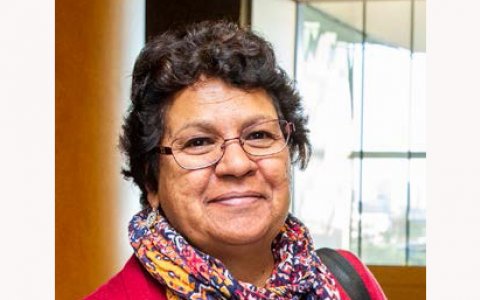Aboriginal researcher Dr Jocelyn Jones appointed to lead NDRI’s Aboriginal Research Program
A leading Aboriginal epidemiologist with extensive experience in the area of Aboriginal health and justice services has been appointed to lead NDRI's Aboriginal Research Program.
Dr Jocelyn Jones, a Nyoongar woman with Wadjuk, Ballardong and Palyku connections to the land in Western Australia, will lead a program of original and community-driven research that aims to change policy and improve outcomes for Aboriginal and Torres Strait Islander people and communities in relation to alcohol and other drug use.
Jocelyn brings with her 30 years of experience working in Aboriginal community-controlled health services and senior positions in health. Her areas of expertise include Aboriginal and Torres Strait Islander health, prisoner health, child protection, juvenile justice, mental health and wellbeing, and alcohol and other drugs. Jocelyn previously held a research role at NDRI as Chief Investigator on the Social and Cultural Resilience and Emotional Wellbeing of Aboriginal Mothers in Prison (SCREAM) and Young Offenders’ Mental Health, Sexual Health and Reproductive Health Study (MeH-JOSH) projects.
“This role offers a wonderful opportunity to build the field of Aboriginal and Torres Strait Islander alcohol and other drug research, research capacity and research translation,” Jocelyn said.
“I look forward to working in partnership with colleagues, the Aboriginal community, and relevant organisations, to contribute to preventing and reducing the burden of harm caused by alcohol and other drugs amongst Aboriginal and Torres Strait Islander people.”
NDRI Director, Professor Simon Lenton said, “It is fantastic for NDRI, Curtin University and the community to have an Aboriginal researcher of Jocelyn’s calibre heading NDRI’s Aboriginal Research Program.”
NDRI’s Aboriginal Research Program was established in 1992, following the Royal Commission into Aboriginal Deaths in Custody, to identify factors that can prevent alcohol and other drug related harm among Aboriginal populations, develop culturally appropriate ways to measure the extent and consequences of drug misuse among Aboriginal people, and disseminate information and provide advice on Aboriginal alcohol and other drug issues.











